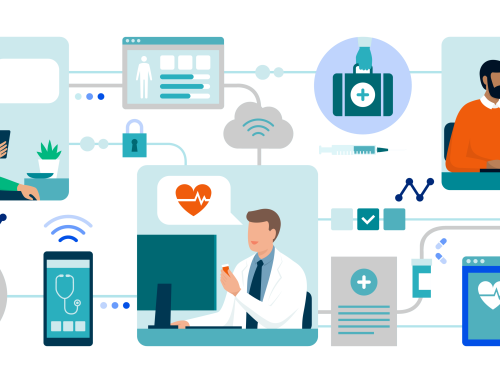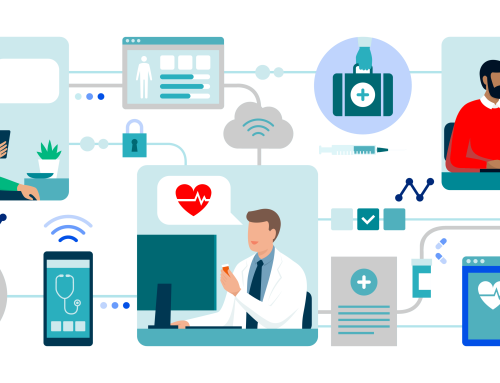In the fast-paced world of healthcare, maintaining high-quality patient care is paramount. Healthcare institutions constantly strive to enhance their services and ensure the best outcomes for their patients. One powerful tool that aids in this pursuit is Peer Review Management. This article delves into the significance of Peer Review Management in healthcare, its benefits, and how it plays a pivotal role in enhancing patient care quality.
Understanding Peer Review Management
Peer Review Management (PRM) is a structured process that involves the evaluation of a healthcare professional’s performance and decision-making abilities by their peers or colleagues. It serves as an essential mechanism for quality assurance and improvement in healthcare settings. By utilizing the expertise of professionals in the same field, healthcare institutions can assess clinical practices, identify areas for improvement, and establish a culture of continuous learning.
The Role of PRM in Enhancing Quality Care
Peer Review Management is a powerful tool that contributes significantly to the enhancement of quality care in several ways:
- Identifying and Addressing Knowledge Gaps: Through the peer review process, healthcare professionals can identify any knowledge gaps and areas where advancements in medical research and practices could be implemented. This proactive approach enables healthcare practitioners to stay up-to-date with the latest developments and deliver the most effective treatments to patients.

- Ensuring Adherence to Best Practices: Peer Review Management helps ensure that all healthcare professionals adhere to established best practices and guidelines. By conducting regular reviews, institutions can identify deviations from standardized protocols and take corrective measures promptly, reducing the likelihood of medical errors and enhancing patient safety.
- Fostering a Culture of Accountability: Incorporating peer review into healthcare institutions fosters a culture of accountability among professionals. Knowing that their decisions and actions will be subject to review encourages healthcare providers to practice with increased diligence and attention to detail, ultimately benefiting patient outcomes.
- Encouraging Professional Development: Peer Review Management not only evaluates existing practices but also provides valuable feedback to healthcare professionals, aiding in their ongoing professional development. Constructive criticism and insights from peers can empower individuals to refine their skills, leading to a more competent and capable healthcare workforce.
- Enhancing Interdisciplinary Collaboration: Peer Review Management facilitates communication and collaboration among healthcare professionals from different disciplines. Through the review process, experts from diverse fields can exchange knowledge, share insights, and work together to devise comprehensive and effective treatment plans.
Implementation
To leverage the full potential of Peer Review Management, healthcare institutions need to establish a well-structured and transparent process. Here are the key steps to implement an effective PRM system:
- Define Clear Objectives: Determine the primary goals of the peer review process, such as improving patient care, identifying learning opportunities, and enhancing overall institutional performance.
- Select Appropriate Reviewers: Carefully choose peers or colleagues who possess the necessary expertise to conduct fair and insightful evaluations.
- Create a Constructive Feedback Mechanism: Encourage reviewers to provide constructive feedback that focuses on strengths and areas for improvement. This will foster a positive learning environment rather than a punitive one.
- Establish a Regular Review Cycle: Conduct regular peer reviews to ensure continuous improvement and consistency in patient care.
- Ensure Confidentiality and Anonymity: To encourage open and honest feedback, maintain confidentiality and anonymity throughout the peer review process. This fosters an environment where reviewers feel comfortable sharing their insights without fear of retribution.
Benefits of Peer Review Management for Healthcare Institutions
Implementing a robust Peer Review Management system can yield several advantages for healthcare institutions, including:
- Enhanced Patient Safety: By identifying and rectifying potential risks or errors through peer review, healthcare institutions can significantly improve patient safety and reduce adverse events.
- Quality Improvement: Regular peer reviews lead to continuous quality improvement. Addressing areas of concern and implementing changes based on feedback can lead to better patient outcomes and overall institutional performance.
- Professional Growth and Job Satisfaction: Healthcare professionals who receive constructive feedback through peer review have the opportunity to enhance their skills and knowledge, which can boost job satisfaction and overall morale within the organization.
- Compliance and Accreditation: Peer Review Management plays a critical role in meeting compliance requirements and accreditation standards. Institutions that adhere to best practices through peer review are better positioned to meet regulatory expectations.
- Data-Driven Decision Making: Peer Review Management generates valuable data on clinical practices and outcomes, allowing institutions to make data-driven decisions and optimize resource allocation.
Challenges and Considerations
While Peer Review Management offers numerous benefits, it is essential to acknowledge and address potential challenges:
- Subjectivity: Peer reviews can be subjective, influenced by individual biases or personal relationships. Instituting clear evaluation criteria and regular calibration sessions can help mitigate this issue.
- Time and Resource Constraints: Conducting comprehensive peer reviews can be time-consuming, and institutions may face resource constraints. Efficient processes and technological solutions can streamline the review process.
- Resistance to Feedback: Some healthcare professionals may be resistant to receiving feedback from peers. Encouraging a culture of constructive criticism and emphasizing the positive impact of feedback can help overcome this resistance.
Embracing Excellence: The Power of Peer Review Management
Peer Review Management is a vital tool in the pursuit of enhancing quality care in healthcare institutions. By leveraging the collective knowledge and experience of healthcare professionals, organizations can identify areas for improvement, maintain adherence to best practices, and cultivate a culture of continuous learning and development.
In an ever-evolving healthcare landscape, implementing an effective Peer Review Management system not only benefits patients but also empowers healthcare professionals to stay at the forefront of medical advancements. Embracing peer review as an integral part of the healthcare process is a crucial step toward achieving excellence in patient care and fostering a strong sense of professional accountability.
References:
- Davis, M. S. (2019). Peer Review: Process, Perspectives, and the Role of Health Services Research. Medical Care Research and Review, 76(3), 249–261.
- Bingham, C. O., & Giles, J. T. (2019). Peer Review in Health Sciences Research. Arthritis & Rheumatology, 71(1), 1–3.
- Solomon, D. J., & Henry, R. C. (2018). The Seven Steps of Peer Review. Chest, 153(5), 1238–1241.
| Editor’s Note: BHM Healthcare Solutions offers case review and medical director expertise, business intelligence, software, CIA consulting services and accreditation support focused on improving patient care. Contact BHM for a brief discussion on how BHM achieves success. CLICK HERE |






Leave A Comment